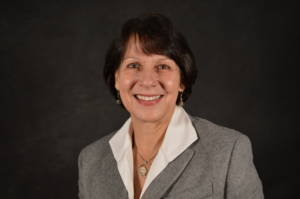 Think Globally, Act Locally
Think Globally, Act Locally
The phrase is a familiar call to action, used in a variety of contexts from mathematics to corporate social responsibility to a wide range of environmental issues. At first glance it seems entirely pragmatic and appropriate to all of the instances in which it is utilized, reminding us to see the larger picture, and then to offer our individual actions to that purpose. But does it carry a false hope with it, lulling us into complacency with small actions? Is it used so widely because it makes things “easy”? At this pivotal time in so many things, is it what we want to be saying?
The original phrase has been claimed by many but seems most often attributed to Scots town planner and social activist Patrick Geddes, in his 1915 book “Cities in Evolution”. Geddes was also a biologist, sociologist, and philanthropist, rather a perfect background for many of the concepts of sustainable development that were formalized decades later. His ideas and thought contributions are many and substantive, ranging from introducing the concept of “region” to architecture and planning to blueprints for transformative and interdisciplinary education (a wonderful deeper dive into the significance of Geddes work can be found by Daniel Christian Wahl). Wahl identifies two central lessons of Geddes work: the interdependence of human well-being and the state of the environment, and the importance of locally adapted action to cultural transformation. Although the literal phrase “Think global, Act local” never appears in Geddes work, its basis is clearly evident in the book: “‘Local character’ is thus no mere accidental old-world quaintness, as its mimics think and say. It is attained only in course of adequate grasp and treatment of the whole environment, and in active sympathy with the essential and characteristic life of the place concerned.” And so the concept of bioregionalism was born. It is interesting to note that the term “global” was invoked by Geddes to include the environment in planning rather than the worldwide perspective we understand it to mean today. The phrase that Geddes indirectly coined attains its second phase of meaning during the 1970s to 1990s, when the rising environmental movement gave “global” a geopolitical dimension (at the time, that of the planet earth and the 4 billion people who lived on it); it becomes a call to focus on one’s local environment, with the expectation that your small acts will add up, slowly leading to change at larger and larger scales.
The term “local” has also evolved in meaning, and it is this final iteration that brings the full power and potential of the phrase to me. It begins with the first United Nations Conference on Environment and Development in Rio de Janeiro in 1992, and the adoption of Agenda 21 by 178 countries that provided a political foundation and action items to facilitate the global transition toward sustainable development. Agenda 21 recognised that many environmental problems can be traced back to local communities and that local governments have an important role to play in implementing environmental programs and gathering community support. Thus, in Chapter 28, Local Agenda 21 is conceptualized, which is a voluntary process of local community consultation with the aim to create local policies and programs that work towards achieving sustainable development. Local Agenda 21 encompasses awareness raising, capacity building, community participation and the formation of partnerships in service to the self-defined goals of local communities, who often define sustainability in different ways that reflect their values and priorities.
After following the evolution of meaning of the worlds and the phrase, can I answer the question that I posed? In short, yes. “Think globally, act locally”, when taken in its full and substantive interpretation, is certainly the thing to be saying at this pivotal time. Its power is in the action that it inspires, demonstrated by the range of projects and initiatives in this newsletter. And so, I’ll end with a quote from a hero of mine, the author and scholar Joanna Macy: “Active Hope is waking up to the beauty of life on whose behalf we can act. We belong to this world.”
May you continue to be safe and ready for action.
Denice
